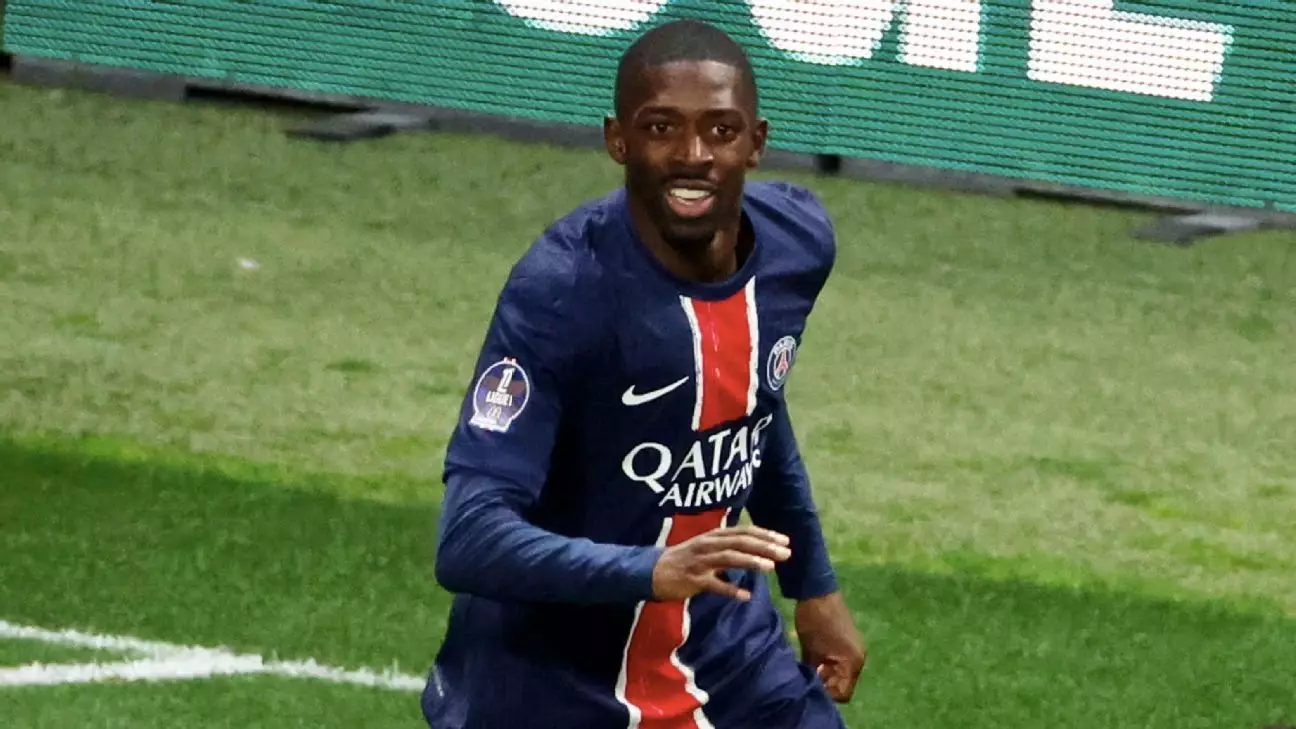Amid the high stakes of professional football, the expectation for a player to emerge as a team’s leading scorer can place significant weight on their shoulders. Luis Enrique, the head coach of Paris Saint-Germain (PSG), views this dynamic with caution. In light of Ousmane Dembélé’s recent performance, which included a vital goal during a 1-1 draw against Reims, Enrique is reluctant to designate him as the primary goal-scorer for the team. His apprehension is rooted in the belief that elevating a single player’s scoring duties could lead to undue pressure, ultimately jeopardizing team performance.
Dembélé, having netted four goals alongside two assists so far this season, certainly possesses the capability to step up in Kylian Mbappé’s absence. However, Enrique’s philosophy emphasizes a collective effort rather than reliance on individual brilliance. He articulated this sentiment in a recent press conference, underscoring that while Dembélé’s contributions are appreciated, the focus should remain on cohesive team improvement. The coach articulated, “We’re not looking for a goal scorer… The whole team has to keep improving.” This perspective reflects a deeper understanding of the game where success is built on synergy rather than solitary exploits.
PSG recently faced Reims after a narrow victory over Girona in the Champions League, a match that posed its own set of challenges. Those challenges were exacerbated by the absence of key players, including striker Marco Asensio and goalkeeper Gianluigi Donnarumma, whose injuries placed additional strain on the squad. Enrique recognized these hurdles, admitting that they knew the match against Reims would be strenuous. He acknowledged Reims’ physicality and skill, highlighting the need for PSG to establish consistent rhythm—an element that eluded them during the match.
In addressing such adversity, Enrique expressed optimism regarding his tactical framework. By advocating for positional versatility, he believes PSG can dynamically adjust to opponents’ strengths and weaknesses. This adaptability is crucial as they prepare for upcoming fixtures against Stade Rennais and Arsenal in the Champions League. Enrique stated, “I have a lot of versatility in my squad… it’s an option we have on a regular basis.” Such statements indicate a strategic mindset that values innovation and the ability to pivot as necessary.
As PSG navigates through a demanding schedule, Enrique’s approach is a clarion call for unity within the squad. Recognizing that football is inherently unpredictable, he channels his focus on fostering an environment where every player shares accountability for both successes and failures. By downplaying the emphasis on individual accolades, he aims to cultivate a resilient team spirit that thrives under pressure.
Ultimately, the road ahead for PSG will likely require continuous adjustment and commitment from every player. As Dembélé continues to shine, the onus will be on the collective effort to uphold team performance during critical matches. In a sport where individual talent is often spotlighted, Enrique’s measured approach serves as a reminder that synergistic teamwork is the cornerstone of lasting success. Thus, PSG’s vision extends beyond the pursuit of goals; it embraces a comprehensive strategy that integrates all players, fostering both individual growth and team accomplishments.

